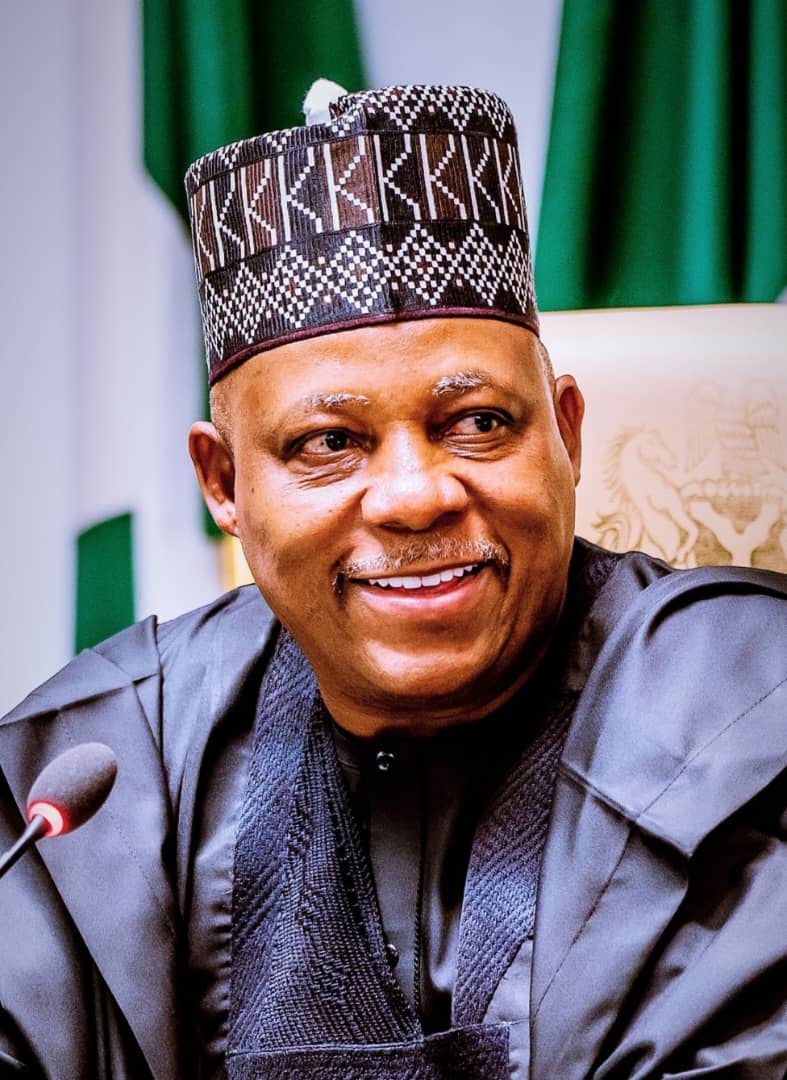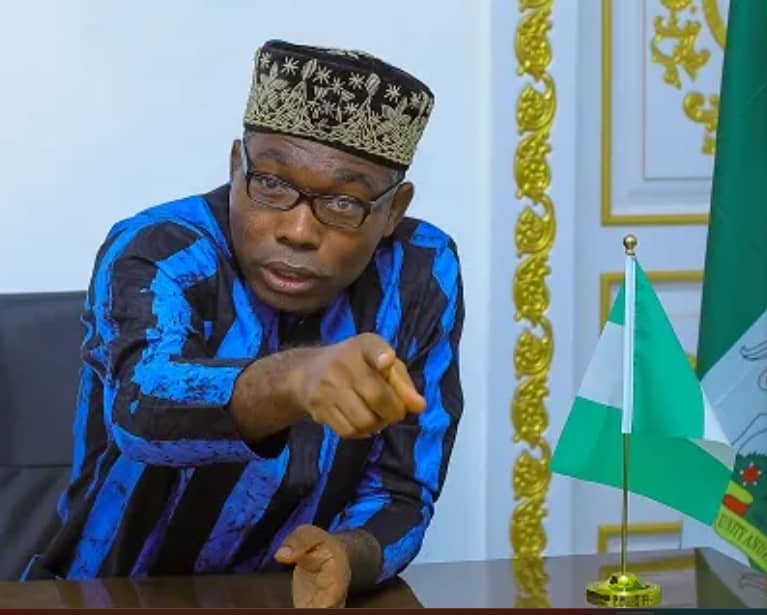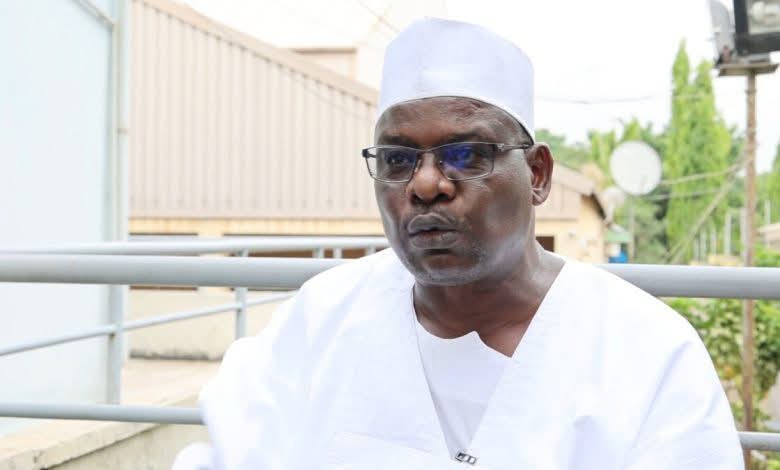Vice President Kashim Shettima has commended the newly expanded $1 billion Green Imperative agricultural initiative between Nigeria and Brazil, describing it as a transformative milestone in the two nations’ long-standing relationship.
Speaking at the opening session of the 2nd Nigeria-Brazil Strategic Dialogue Mechanism (SDM) held at the State House in Abuja, Shettima emphasized that the collaboration was built not on proximity, but on shared values, mutual respect, and a collective vision for prosperity.
Shettima noted that both Nigeria and Brazil, as large and diverse democracies with abundant natural and human capital, are uniquely positioned to drive development through practical cooperation. He highlighted that the Green Imperative Project, a flagship initiative under the partnership, aims to revolutionize Nigeria’s agriculture sector by delivering mechanized farming equipment, training centers, and service hubs across the country.
According to Shettima, “This project will create jobs, raise productivity, and help secure Nigeria’s ambition to feed itself and others.” He also stated that the initiative aligns with President Bola Tinubu’s economic reforms aimed at stabilizing and expanding Nigeria’s economy.
The Vice President used the platform to reaffirm Nigeria’s commitment to bold economic decisions, including the removal of fuel subsidies and the unification of exchange rates. He said these reforms, although painful, are critical to restoring investor confidence, strengthening public finances, and laying the groundwork for a projected N1 trillion economy by 2030.
Shettima also stressed the need for increased bilateral cooperation in sectors such as energy, education, health, and security. He pointed to Brazil’s leadership in renewable energy and biofuels as an area where Nigeria sees significant potential for joint ventures and knowledge exchange.
Brazil’s Vice President Geraldo Alckmin, who led a high-level delegation to Abuja, echoed Shettima’s sentiments. He described the growing partnership as one grounded in tangible results and shared democratic values. Alckmin praised the progress made in various sectors and invited Nigeria to actively participate in COP30, which Brazil will host in Belém at the end of 2025. He emphasized the importance of joint action on climate issues and sustainable development.
Alckmin also referenced Nigeria’s participation in the 2nd Brazil-Africa Dialogue on Food Security held in May in Brasilia, noting it as a testament to the strengthened collaboration between the two nations. He said the frequent high-level exchanges, including President Tinubu’s participation in the G20 and Brazil’s upcoming hosting of the BRICS summit, underscore the depth of engagement between both countries.
Nigeria’s Minister of Foreign Affairs, Ambassador Yusuf Tuggar, in his remarks, described the meeting as a historic moment in bilateral relations. He recalled that Nigeria and Brazil established diplomatic ties in the 1960s, and that the Strategic Dialogue Mechanism—first held in 2013 in Brasilia—was created to deepen economic and social cooperation.
Brazil’s Ambassador to Nigeria, Carlos José Areias Moreno Garcete, reiterated the shared historical and cultural bonds between the two nations. Representing Brazil’s Minister of Foreign Affairs, Garcete emphasized that Africa is a central focus of Brazil’s foreign policy under President Luiz Inácio Lula da Silva. He stated that Brazil views its cooperation with African nations, especially Nigeria, as key to achieving mutual goals of eradicating hunger and reducing inequality.
Minister of Defence Mohammed Badaru Abubakar said the strategic meeting goes beyond diplomacy to address peace, security, and sustainable development. He noted that both countries will work together more closely on maritime security, particularly in the South Atlantic, an area where Brazil has demonstrated regional leadership.
Minister of Agriculture and Food Security, Senator Abubakar Kyari, highlighted that Nigeria’s agricultural reforms under the Tinubu administration are already showing results. He called for deeper collaboration with Brazil to build on the momentum, especially in the areas of food production and supply chain development.
Seven major Memoranda of Understanding (MoUs) were signed during the first day of the dialogue, covering a range of sectors including agriculture, defence, energy, culture, and counter-narcotics. These included:
An Addendum to the Strategic Dialogue Mechanism, reaffirming the partnership’s guiding framework.
A new Agreement on Defence Cooperation enabling joint training, intelligence exchange, and technological collaboration.
An MoU on Technical Cooperation in Energy, focusing on renewable energy and electricity generation.
An Addendum to the MoU on Cooperation in Livestock, Agriculture, and Food Security.
MoUs on Audiovisual and Tourism Cooperation.
An MoU on combating the illicit production and trafficking of narcotic drugs, signed by officials from the Brazilian Federal Police and Nigeria’s National Drug Law Enforcement Agency (NDLEA).
Other Nigerian ministers present and speaking at the event included Minister of Industry, Trade and Investment, Dr. Jumoke Oduwole, and Minister of State for Health, Dr. Iziaq Salako. They emphasized the significance of the bilateral agreements in advancing Nigeria’s development goals and facilitating knowledge exchange between both nations.
In his closing remarks, Shettima called on both sides to go beyond ceremonial signings and commit to concrete actions. “Let this Strategic Dialogue Mechanism not be remembered as a formal reunion, but as a decisive pivot—from aspiration to execution, from promise to proof,” he said.
The SDM is expected to continue over the coming days, with further announcements and agreements anticipated.





